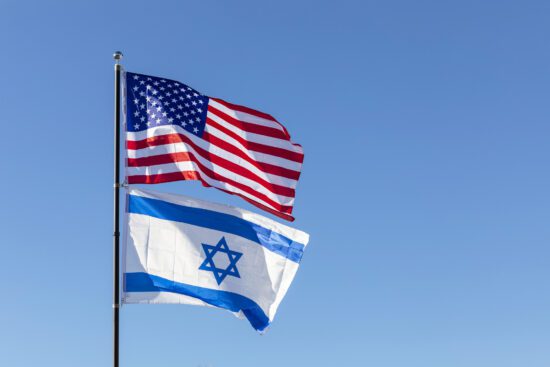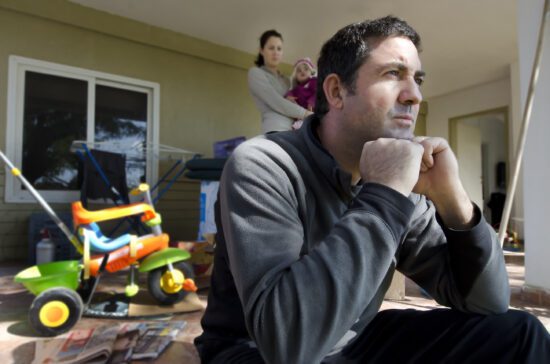Recent news has continued to bring to light the harsh realities of many in other countries and the need to reach out to those who have come to the U.S. for refuge. Many believers and churches are trying to find ways to reach out to immigrants and refugees locally, nationally, and globally. A great first step that our church took was to reach out to the North American Mission Board, the ERLC, and World Relief. Each of these organizations provided us with excellent resources to welcome, serve, and advocate for immigrants and refugees through the love of Christ.
Some of these strategies included greeting newly arriving refugees at the airport, delivering welcome baskets to homes, and developing simple English-based programs to teach the Bible and other subjects. They also provided us helpful tools for talking and teaching about immigration-related issues in our church.
More than two years ago, our church began what we call our “International and Refugee Ministry.” Along the way, we have learned a few things that weren’t in the first-steps resources we received. Our hope is that the ideas below will help you and your church establish long-lasting relationships with your immigrant and refugee community.
1. Connect with international families by partnering with local schools.
As is true in any community in the U.S., families and schools go together. We’ve found that each of our local school districts are thrilled to have support for their international students and families. We’ve connected with these families through providing snacks and volunteers for afterschool programs, involving students and families in our music programs, teaching English to parents, teaching parenting classes, hosting family gatherings, and offering events in their apartment complexes. In many cases, the initial connection through the schools leads to invitations into the homes and lives of our immigrant and refugee neighbors.
2. Offer opportunities to learn and practice English as often as possible.
You will likely be surprised at how English-learning opportunities will become a draw for your international neighbors. Oftentimes, our international neighbors will come in groups to our services, classes, and events to listen in English together and then discuss later. If only all of our English-speaking members were willing to put in so much effort to understand the Scriptures!
We offer several English as a Second Language (ESL) classes. From ESL, our students are invited to join one of our multiple Bible study classes that are taught in simple English, using either story method or video-driven content with subtitles. Though we are happy to offer translation helps in many situations, we try to do as much as we can in English with printed or projected words available.
One important thing to note, however, is that the most effective ministry is usually done in a person’s “heart language.” If you do not have someone in your congregation who speaks a person’s first language, look for a minister or strong believer in your community who does.
3. Make friends, and get to know others just as you would with anyone else.
Many of our American-born members have been hesitant to invite internationals to their classes or events because they are afraid things will get awkward. I tend to ask those members, “How did you get to know any of your current friends?”
They usually respond, “I asked them about their family;” or “I asked them about where they grew up;” or “I asked them about their job or their hobbies.”
My reply is: “Yes, yes, and yes. Do those things. Everyone loves to talk about their children. People always appreciate when someone shows interest in their lives or the things they care about. Jump in there, and make lasting friendships—and remember that the language barrier and awkwardness go both ways!”
In order to facilitate these kinds of friendships between our American-born and foreign-born people, our church hosts recurring events including family dinners with both American and international cuisine. You will never have better and more diverse meal choices!
4. Focus on family strengthening like you would with American families.
All of our churches are proudly pro-family. Our ministries and programs are highly focused on both attracting and equipping families in the gospel. We should invest in strengthening immigrant and refugee families with the same goals.
A great example of this is our “Mommy and Me” group for Burmese refugees in a local apartment complex. Many of the Burmese new mothers are overwhelmed after having their first child in the U.S. because they have never been taught how to nurture a baby using American resources such as disposable diapers, plastic bottles, and car seats. So, a group of our American-born moms began the group to teach basic infant-care skills along with Bible songs and simple Bible stories in English for the moms to use in their homes. The American and Burmese moms also take field trips and do activities together.
5. Look for ways to help immigrants and refugees generate their own income or resources.
This one might sound harder than any of the others, but it need not be. It could be as simple as starting a food co-op, opening a clothing exchange, or helping others learn a trade or technique. Our church partners with a wonderful organization called Rising Village (RiSE), which teaches refugees how to operate sewing machines of all types—from simple machines to commercial and industrial machines. Through this program, women have learned how to make clothing for their children and other items used in their homes. Some have made items for resale, or even gained full-time employment in local businesses because of the skills developed through RiSE. (See this local news story (KJRH) about RiSE and our church).
Many immigrants and refugees can also provide services for pay, even if they are not hired as a permanent employee. Several of our paid translators come from our English classes, and we simply pay them weekly on a contract basis as 1099 workers. Even if a person is not yet a U.S. citizen, those with a legal immigration status can work with a green card, certain types of visas, or other form of employment authorization provided by USCIS. Though these positions only pay a small amount of money, they provide the translators with an official connection to our church and help them establish employment history in the U.S.
Each of these strategies are part of a few greater goals: to treat our immigrant and refugee neighbors with dignity and respect, to help meet their needs in ways that build up and strengthen families, and to point them to the God who created them so that they might know the Savior who came to meet their greatest need, salvation in his name.
For more information about our church’s ministry to immigrant and refugee families, or to learn more about immigration related issues, visit Eric Costanzo’s site.










